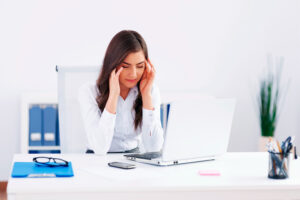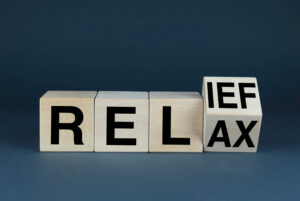- Stick to a sleep schedule
We should aim to go to bed and wake up at the same time each day. People generally have a hard time adjusting to changes in sleep patterns. Unfortunately sleeping late on weekends doesn’t make up for poor sleep during the week. If necessary, set an alarm for bedtime. If you are a night owl and want to get up earlier, try getting early morning sunshine.
- Don’t exercise too late in the day
Exercise is great, and we should try to exercise at least 30 minutes on most days. But try to time it no later than 2-3 hours before bed.
- Avoid caffeine & nicotine
Colas, coffee, teas (that aren’t herbal) and chocolate contain caffeine, which is a stimulant. Even consuming these in the afternoon can have an effect on your sleep. Nicotine is also a mild stimulant, and smokers will often wake up earlier than they would otherwise, due to nicotine withdrawal.
- Avoid alcoholic drinks before bed
The presence of alcohol in the body can reduce your REM sleep, keeping you in the lighter stages of sleep.
- Avoid large meals and beverages late at night
A light snack before bed is okay, but a heavy meal can cause digestive issues, which interferes with sleep. Drinking too many fluids can cause frequent awakenings to urinate.
- Avoid medicines that delay or disrupt your sleep (where possible)
Some commonly prescribed heart, blood pressure or asthma medications, as well as some over the counter and herbal medicines for coughs colds or allergies can disrupt sleep patterns. If you have trouble sleeping, it may be worth speaking to your doctor or pharmacist to see if any of the drugs you’re taking may be contributing to this. It may be possible to take them earlier in the day.
- Naps are good but not after 3pm
Naps are great, but taking them too late in the day can make it hard to fall asleep at night.
- Make sure to leave time to relax before bed
It’s important to have time before bed to unwind. Try to schedule your days so that there is time to relax before bed.
- Take a hot bath before bed and listen to a relaxing CD
The drop in body temperature after a bath may help you to feel sleepy, and the bath can help you to slow down and relax before bed. Then listen to a relaxing hypnosis CD …either mine or something that is positive and relaxing for you.
- Have a dark, cool (in temperature), gadget free bedroom
We sleep better at night if the temperature in the room is kept on the cool side (ideally around 65 degrees). Gadgets such as mobile phones and computers can be a distraction. Additionally, the bright/blue light they emit, suppresses the secretion of melatonin (important to mention that the bright and blue light that emits from the sun rising, helps to wake us up- try and get it early). Melatonin being a hormone that regulates sleep/wake cycles – with it increasing in the evening to induce sleep. There are things we can do to reduce the bright light at night, including:
- Using blue light filters on our phones & tablets. iOS 9.3 or later (iPhone 5S & iPad 2 onwards) has this built in – called Night Shift. On Android there are apps for this, a popular one being Twilight.
- Using blue light filters on our computers. For MacOS & Windows flux is a popular solution. Windows 10 also has a built in “Night Light” function that offers similar functionality.
- Using blue light filters on our home lighting system. A popular solution to this are Philips Hue bulbs, which connect wirelessly to your router, and can be programmed to reduce blue light during certain times of day. So, for example, if your bedtime is 11pm, you can set the bulbs to reduce blue light from 10pm onwards… which will increase your melatonin level, preparing you for sleep.
- Get the right sunlight exposure
Sun exposure first thing in the morning helps us to regulate sleeping patterns. Try to get outside in the natural sunlight for at least 30 minutes per day.
- Don’t stay in bed if you (really) can’t sleep
If you find yourself still in bed for more than 20 minutes, or you’re starting to get anxious in bed, get up and do something else until you feel sleepy. Anxiety whilst trying to sleep can make it harder to fall asleep.




